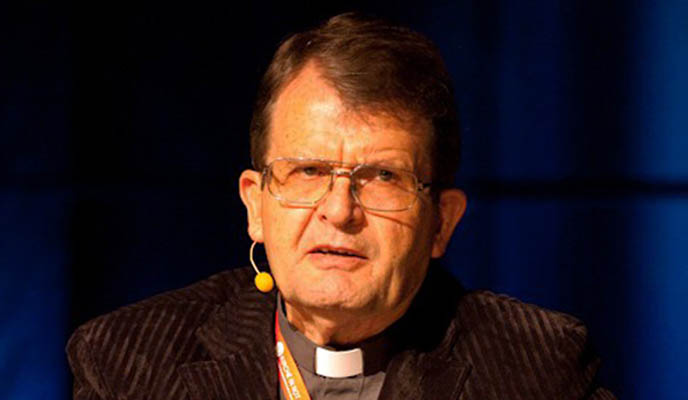
THIS country is sick and needs a strong medicine called “foreign investments”. True, “no one is an island”, and we do well if we co-operate with neighbouring countries and even countries overseas willing to give a helping hand in rebuilding our ruined infrastructure, like roads, water, energy and processing of minerals.
Ideological obstacles inherited from the past need to be phased out. “Indigenisation” should no longer mean grabbing what others have built up, but creating our own industry.
Then we have a right to claim “sovereignty” and “economic independence”. Flying to China with a begging bowl in the luggage makes a laughing stock of our “liberated” country.
Our friends in the Diaspora invest their labour in developed countries. Their remittances have helped their families. Many houses are being built with their “Western Union” cash. But when will they come and rebuild our “de-industrialised” Zimbabwe? Are we still waiting for foreigners?
The church has a similar problem. Today’s young leadership blames the old missionaries for “spoiling us”. Now aid comes only in thin trickles for selected projects if the locals have done their part.

A Chinese lady, but also Zimbabwean, ex-combatant and ex-Cabinet minister, educationist and academic teacher, advises against total reliance on foreign aid in her recent book Zimbabwe – Looking East. Fay Chung, who manages to be at one and the same time loyal to her old “comrades” and yet critical of their government, writes: “Politicians, as well as workers still aim at restoring the 1980s, when Zimbabwe enjoyed generous donor funds. Returning to the past is wishful thinking. Until and unless Zimbabwe uses what little resources it has more judiciously for developmental purposes rather than for short-term political support, it will fail to develop. It is totally unsound to expect development to come from the East or from the West. Development will come from internal drivers.
“Industrial expansion could and should be done in partnership with friendly countries, which are prepared to enable technology and managerial exchanges, as well as to facilitate markets.
- Chamisa under fire over US$120K donation
- Mavhunga puts DeMbare into Chibuku quarterfinals
- Pension funds bet on Cabora Bassa oilfields
- Councils defy govt fire tender directive
Keep Reading
“Zimbabwe [is] to stop its corrosive dependence on donor aid, and instead look at dependence on its own resources.” (Looking East, p 224/5).
Even though China retained its socialist political ideology, the economy was allowed to follow its own course and develop in the light of experience gained over many years. It was neither dictated to by foreign experts nor by party ideologues without any technical expertise.
To the contrary, “In Zimbabwe political power is still used to leverage economic control. This mixes up political skills and decision-making with economic and entrepreneurial skills. These two sets of skills do not usually coincide . . . it is unwise to give important economic decision-making to politicians who do not have an understanding of the technical specificities of the job.” (Zimbabwe Looking East, 205).
Economics must be freed from political interference. China managed to do that. Zimbabwe did not. The result is obvious: China is an economic powerhouse, and Zimbabwe is holding the begging bowl.
“Zimbabwe should cure itself of donor dependence, which is a drug that undermines the development of autonomy and sovereignty. Instead it should depend on Zimbabwe’s own investments into economic projects, especially the State Budget” (191).
Economic life consists of three elements: land, capital and labour. But their productivity is not automatic. What the land yields, depends on the quality of the farmer. Capital is productive only if it is not wasted through corruption and embezzlement or spent on lavish consumption and a luxurious lifestyle.
By far the most important element is labour and human resources, ie, the workers and managers, their intelligence and technical know-how, honesty and sense of social responsibility, their vision and far-sightedness, imagination and perseverance in realising their dreams.
There is no replacement for people and persons, no robot and no computer. Land and capital are mere tools. The idea that investment will automatically turn us round and create an instant paradise is as pathetic as the promises of “prophets”.
It is people and their creative thinking turned into action, their sense of responsibility and caring attitude for their fellow citizens that will make a difference.
Our political class does not have these qualities. Wasting their time on useless power games, they make no difference. Even looking East, they will not find a magic wand.
There is unemployment. But no lack of work. There is work lying on the street, you can pick it up. Fill up the potholes. Carry off the rubbish. Pick up plastic bottles for recycling. Grow vegetables. Become a potato farmer. If your degree in political science leaves you undernourished, try plumbing. If your dream of becoming an engineer did not come true, learn how to repair cars. You are not wanted as an architect? Try maintenance of buildings, they are falling to pieces. Don’t “look East”, it is all here under your very nose.
Teacher Fay Chung says we need a liberation, not just of politics and economics, but of education, too. Educating future politicians who respect their voters and feel committed to them. Educating future doctors with concern for public health. Educating future civil engineers with the ambition, not just to make money, but to build a new road network and fill up all the old potholes, at least as a temporary measure. Educating civil servants who are actually civil in their behaviour and truly serve the public. Giving future entrepreneurs the courage to take the initiative as economic leaders.
Be nice to donors, even Chinese ones, but don’t become dependent on them.
The author does not mind answering questions: [email protected].











